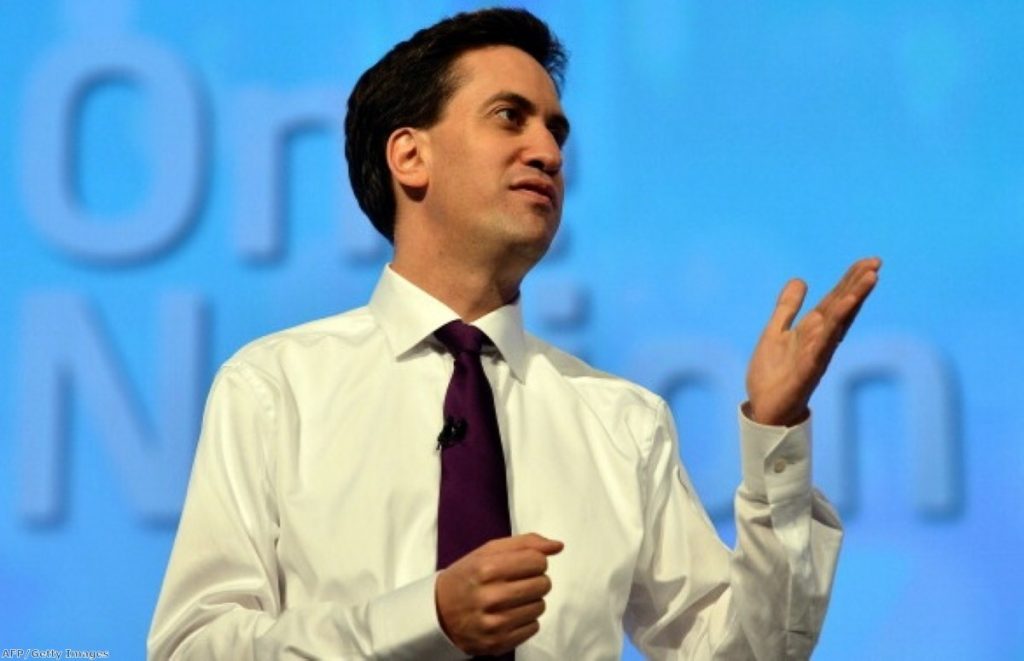Miliband ally warns public ‘don’t get’ Ed’s One Nation vision
Labour's MPs need to do more to "project" unity in the party by standing behind Ed Miliband's One Nation vision, shadow Welsh secretary Owen Smith has told Politics.co.uk.
The founder of the One Nation group, who refer to themselves as 'Milibandites', is calling on the party to redouble its efforts to sell the party leader's vision of Britain to cynical voters.
Smith conceded the "project is better understood within the party than it is in the public right now" and admitted more needs to be done "to spread understanding of what Labour under Miliband is about".
His One Nation group believes Labour should do more to win over the electorate to Miliband's claims that the pro-market approach championed by Margaret Thatcher and accepted by Tony Blair is now dead.
"There is clarity and unity, but we need to project that," Smith urged.
"That means the younger MPs getting out there and selling that story about what the next Labour government will do."
Miliband's energy price freeze promise at the 2013 annual conference was seized on by the group as evidence that the Labour leader is prepared to move on from the "Thatcherite consensus" which Smith says "collapsed around our ears in 2008".
Members of the One Nation group want to see "a rejection of the notion that the orthodox pro-market free-market libertarian strand of political thinking that was dominant for a long time in Britain", he explained.
Instead, Smith argued, "what you need are institutions that are more people-focused, less market focused if you like, about social objectives that deliver for people – whether they are government structures or market structures".
The One Nation group is made up of Labour MPs from the 2010 intake who did not experience firsthand the divisions of the New Labour years in Westminster – and believe Miliband needs a more cohesive set of ideas to frame his approach to running the country.
The radical reformers think winning the decisive level of public support needed to put Miliband in Downing Street with an overall majority will only happen if the public's fundamental attitude to market economics changes.
Few believe the task is going to be an easy one.
"The over-riding challenge that faces us and Ed in all of this is that this is a very radical, ambitious project and we are proposing it in an era in which cynicism and mistrust in politicians is at its highest," Smith said.
"So the barrier to our persuading people that we are sincere and that we can and will deliver is perhaps higher than it's ever been."
Miliband's leadership team are plotting a series of moves towards reconnecting with the electorate which they aim to develop throughout the first half of 2014, Politics.co.uk understands.
The opposition will examine how political reforms – which could even result in a reform of prime minister's questions – will achieve a reconnection between voters and Labour politicians.
Smith said he feared decades of Thatcherism meant voters had become instinctively sceptical about the ability of governments to intervene, however.
He said: "That mistrust and cynicism are quite deep-rooted, and borne of the same triumph of the period of market ideology where people have less faith in the ability of governments and politicians and sovereign states to deliver in the teeth of global markets and international capital.
"Therefore we are having to move against what has been orthodox wisdom for 30 years. But we've got a leader who's doing it."
Last autumn's conference surprised observers, as delegates responded to Miliband's energy price freeze announcement in an unexpectedly balanced way.
"One of the most telling things in respect of this current Labour party is how united we have been," Smith said.
"If there were these deep fissures and faultlines, the Labour party would have cracked under the pressure of being in opposition the last few years. The fact we have held together shows how few of these fissures and faultlines there are."





-01.png)